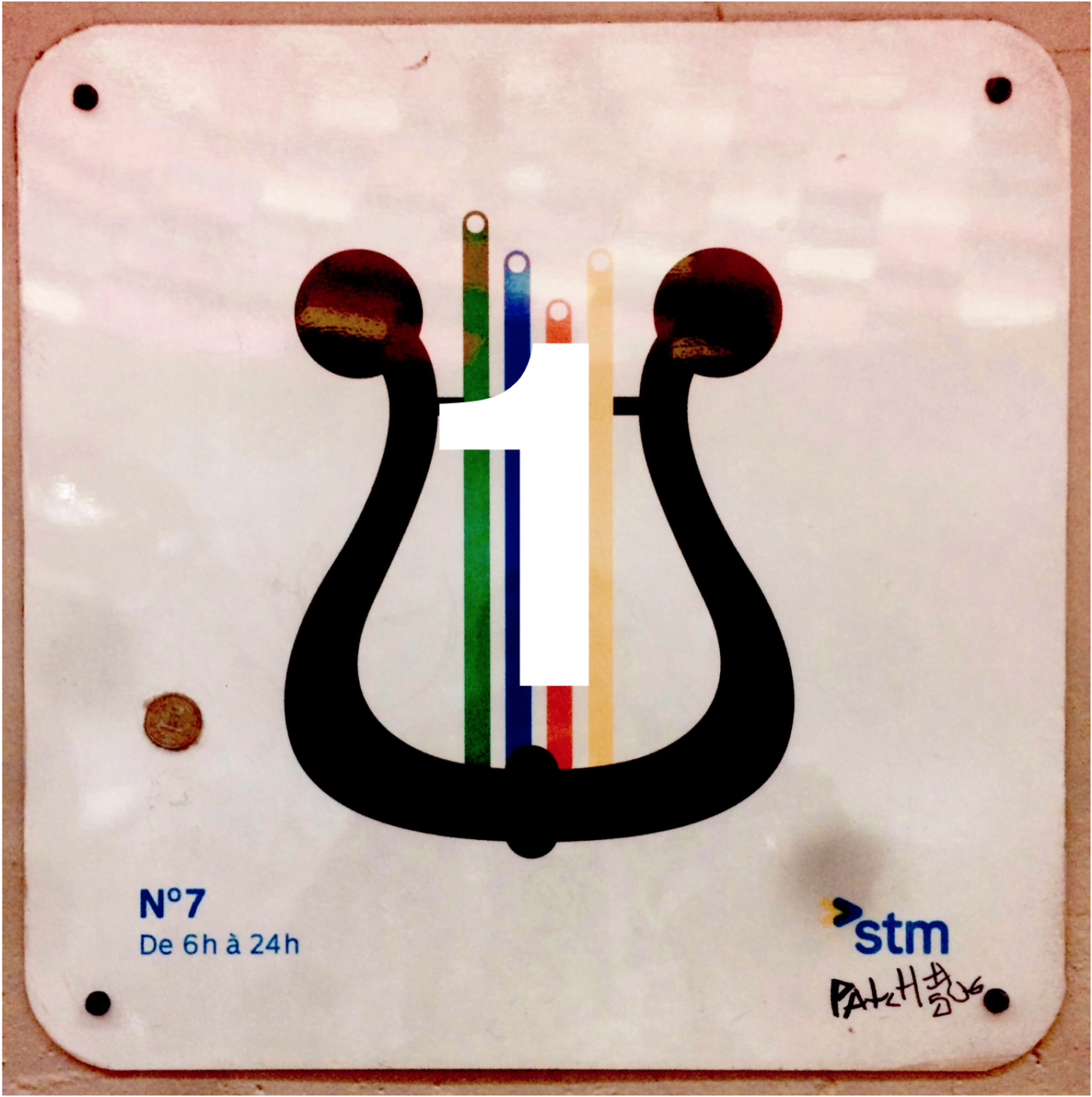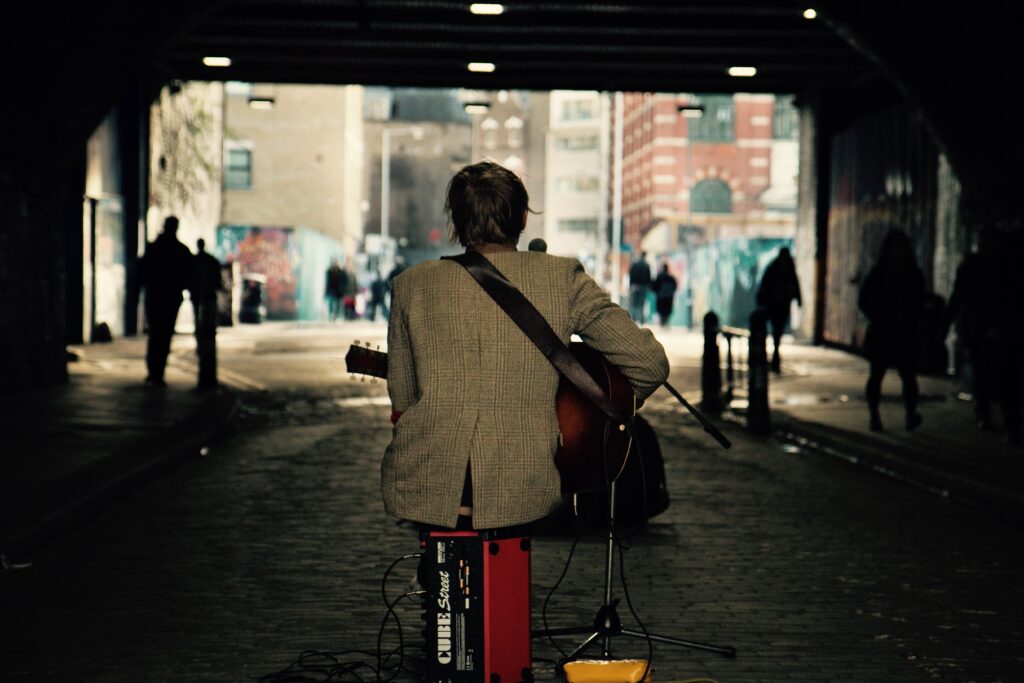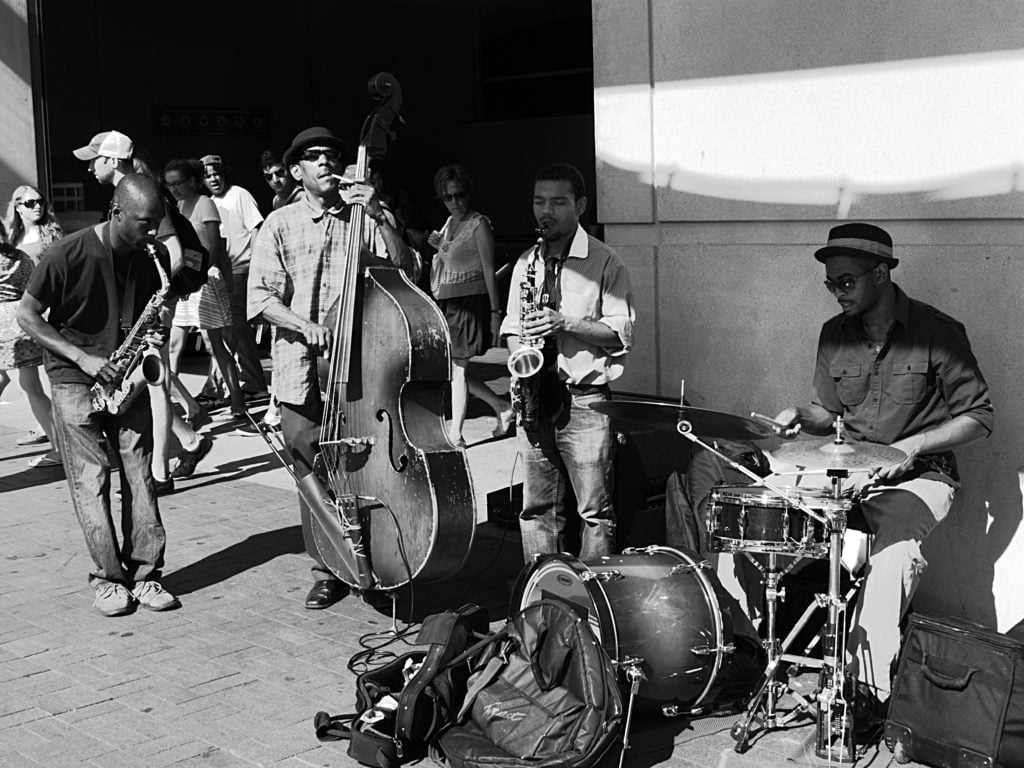
MTL Busking Handbook
Part 1: Tips and Tricks
*This article was written on July 21st, 2018 and so some information may be out of date. We will be working on an update shortly, and apologize for the inconvenience.
* Due to COVID-19, performances in the metro are temporarily suspended – source STM
For those new to busking, it is important to understand the type of audience you will be performing for, and the etiquette adopted between buskers and commuters. Although we can’t guarantee the type of crowd you will have at a given time and place, we can give you a couple pointers in the right direction, and list some unspoken rules of the busking community.
Know Your Audience
Firstly, know your audience. There are several rushes during the day and night when foot traffic is particularly high. This is dependent on the time of day and where you are located.
There are two significant rushes in the morning: the school rush and the work rush. These tend to overlap and span from 06:00 to 10:00. However, your location will determine the ratio of school commuters to work commuters. For example, you’re more likely to have a bigger work rush at Guy-Concordia or McGill are right next to universities on the other hand, suggesting a young and student-rich crowd. Traffic may be more dispersed throughout the day at these locations, since university classes don’t follow the same schedule as schools and colleges. The difference in crowds helps determine the what type of music will be most appreciated, and the same thing goes for the time of day.
School rush repeats again between 15:30 and 17:00. By the time this ends the end-of-work rush begins, starting from 17:00 and ending around 19:30. Some stations may not permit music between 16:00 and 18:00 due to intense traffic (Sauvé and Beaudry).
Weekends
If you are busking on a Thursday, Friday or Saturday, you are likely to encounter a third rush going late into the night. This often consists of people heading out to shows, parties, bars or nightclubs. The rush may start anywhere from 19:30 to the end of the night. Please note that these rushes may change with the weather, especially between late fall and early spring due to the cold. These commuters are more likely to appreciate upbeat and lively music. If this crowd interests you, we suggest performing at downtown locations. The nature of this crowd is largely dependent on which station you are performing.
Keep your eye out for stations near public markets during the weekend (like Lionel-Groulx and Jean-Talon). You will usually encounter a mid-day rush (often between 11:00 and 14:00) and the crowd’s characteristics vary. We suggest tailoring your music to a diverse crowd as you may find they are largely made up of old, young, small groups, families, etc. If you are playing around an older audience, it may be courteous to play softer music.
Events
Keep your ear out for upcoming events as this greatly affects traffic in the area. Events held at Parc Jean-Drapeau will lead to a heavy influx of people at Berri-UQAM station. Busking may be most effective when such events are music-related (like Heavy MONTRÉAL, Île Soniq or Osheaga), especially if you tailor your music and performance to the likes of local commuters. For more information, see Part 2: Rules and Regulations.
Lucien-l’Allier station is located right next to the Bell Centre, which can be an extremely valuable spot depending on what events are happening that evening. Traffic will be high during the time of an event and the crowd type will vary with it. If people are attending a jazz concert, you’ll probably have good luck playing a similar type of music. If a hockey game is happening that night, you could play or write songs that reflects that energy. Another large venue is M Telus (Metropolis), which is minutes away from Saint-Laurent metro station. You may find a similar flux of people during events being held there.
Tailoring your music, performance, and character towards these crowds is extremely beneficial in maximizing the success of your session, whether you measure that financially or in popularity.

Arriving At The Spot
We suggest you come to sign-up as early as possible as this will allow you to book the most convenient time slot. Reservations fill up quick, especially at busy metro stations where the most money can be made.
Please note that some busking spots require an STM ticket to access. These spots are known as internal spots, while external spots require no ticket. If you would like to know more about the spots that can be found at each station, please consult our location list.
If you plan to play for money, leaving some change in a container (ex: guitar case, hat, etc.) encourages others to exchange money for your performance, and indicates that you wish to be paid.
It is considered impolite to demand money from commuters. Commuters may donate at their own will and aren’t obliged to pay anything.
Some stations have better acoustics than others, depending on the size, shape and material of the room. Knowing this can help yield the best performance. (Snowdon station is known for it’s great acoustics.)
There are four “multicoloured” metro stations in Montreal. These are junctions where multiple metro lines meet, presuming higher levels of traffic and more spots, which can be beneficial when deciding where to busk on a given day. These are Jean-Talon, Berri-UQAM, Snowdon and Lionel-Groulx. Berri-UQAM, Jean-Talon and Snowdon are all popular spots within the busking community, while Lionel-Groulx does not currently allow performances due to safety regulations.
Searching metro stations on Google beforehand is a great way to gauge foot traffic throughout the day. Just look for popular times on the left-hand side of the page, and you will find the station’s busiest times for each day. It’s a great way to maximize your busking session.
Our last piece of advice is that you come prepared. Bring extra strings if you’re a guitarist, bring extra batteries if you’re using an amp. No one wants to end a good session early.

